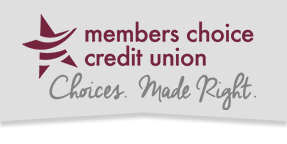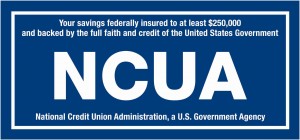
Keys to Better Finances
By Members Choice Credit Union Staff
“You cannot escape the responsibility of tomorrow by evading it today.”
– Abraham Lincoln
Financial Wellness is a lifelong endeavor. Avoidance is not an option. While the choices you make now may seem small, they can have significant ramifications for you in the future.
Don’t put it off another day. Implementing sound financial practices today can cultivate greater financial freedom and lead to a life filled with confidence. Here are 6 keys to better finances:
Budget
P.T. Barnum asserted that, “money is a terrible master, but an excellent servant.”
Sticking to a budget is a fundamental aspect of financial management. It empowers individuals to control their spending, achieve financial goals, and build a secure and stable financial future. With a budget you are taking control and providing structure to your spending.
In a previous article, we outlined a framework that includes tracking your expenses, enabling auto bill pay, and sticking to SMART goals. Budgeting can also help with:
- Financial Discipline: A budget helps individuals develop financial discipline by setting limits on spending. It encourages responsible financial behavior and discourages impulsive purchases.
- Increased savings: Budgeting promotes saving money regularly. Whether it’s for short-term goals or long-term investments, saving is a key component of financial success.
- Avoiding Overspending: Without a budget, it’s easy to overspend and live beyond one’s means. A budget helps individuals stay within their financial limits and avoid accumulating unnecessary debt.
You don’t need to worry every time you take out your wallet. When you have a plan for your money, you can spend and save with confidence.
Emergency Fund
This cannot be overstated: an emergency fund is critical to your financial health. It protects you from unnecessary debt and staves off a myriad of fees.
Unexpected bills will come. Financial storms will hit. An emergency fund will give you the latitude to weather these storms.
It is recommended that you begin with a $500 emergency fund. Once you get there, work towards $1000. Ultimately, you’ll want to have 6-12 months of expenses covered.
Monitor Your Credit
By keeping a keen eye on your credit reports, you are taking a proactive and preventative approach to your personal financial security. Your due diligence helps protect against identity theft and fraud. It can also assist in maintaining a healthy credit score and will give you an opportunity to correct any errors in a timely manner.
Pay Off Your Debt
Paying off debt is crucial for various reasons, and it offers numerous financial and personal benefits:
- Increased Disposable Income: Without monthly debt payments, individuals have more disposable income. This extra money can be used for savings, investments, or discretionary spending, contributing to an improved overall financial situation.
- Asset Accumulation: Debt-free individuals can focus on accumulating assets rather than paying off liabilities. This could include saving for a down payment on a home, investing in stocks or real estate, or building an emergency fund.
- Protection Against Economic Downturns: In times of economic uncertainty, having little or no debt provides a financial safety net. Individuals are better equipped to weather economic downturns without the added burden of debt.
Paying off debt is a key component of financial well-being and is a step towards establishing a solid foundation for long-term financial success.
Spend Cash on Big Purchases
Some debt may be helpful, such as home or auto loans. While the choice between using cash or other payment methods for big purchases can depend on various factors, there are several reasons why individuals might opt to spend cash on significant expenses:
- Avoiding Interest Payments: By paying with cash, there are no interest charges or monthly payments associated with the purchase, making it the cheaper overall option.
- Budgeting Control: When using cash, individuals are limited to the amount they have on hand, helping them stay within their budget. This can be particularly useful for controlling spending and avoiding overspending on large purchases.
- Negotiation Power: Some sellers may be more willing to negotiate on price when dealing with cash transactions. Cash can be seen as an immediate and secure form of payment, providing an incentive for sellers to offer better deals.
- No Transaction Fees: Cash transactions typically do not involve transaction fees, unlike credit card or electronic payment methods that may have associated charges. This can result in cost savings for the purchaser.
Invest
Investing provides the opportunity to grow wealth over time. By putting money into assets that have the potential to appreciate, individuals can increase their net worth and achieve long-term financial goals.
Investing has the potential to outpace inflation, which erodes the purchasing power of money over time. Assets such as stocks, real estate, and certain bonds have historically shown the ability to provide returns that exceed the rate of inflation.
Investing also allows individuals to work towards specific financial goals, such as buying a home, funding education, or saving for retirement. Different investment vehicles can be chosen based on the time horizon and purpose of the financial goal. This is also a key component of retirement planning. By consistently contributing to retirement accounts and investing in a diversified portfolio, individuals can build a nest egg that provides financial security in retirement.
Remember, good financial health is foundational to overall well-being. It provides stability, supports personal and financial goals, and allows individuals to navigate life’s challenges with greater ease. Prioritizing financial health is an investment in one’s present and future quality of life.



